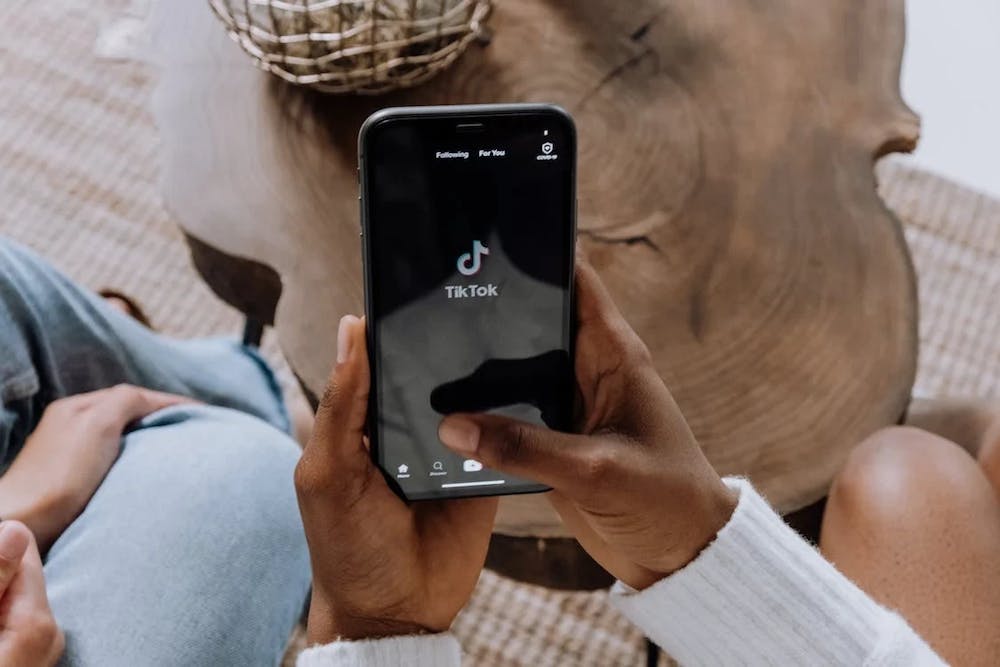By now, the internet is well aware of the young girls on TikTok participating in anti-aging rituals or boys beginning to worry about the shape of their jawlines before they hit puberty. While it would be stating the obvious to say that short-form content is destroying all of our minds, I believe it is crucial to acknowledge those who are most susceptible to it — adolescents.
“Brainrot” is a word that has been popularized on TikTok that means something similar to “chronically online.” Brainrot usually shows itself through the words, mannerisms or beliefs people develop through their overconsumption of media. Terms such as “looksmaxing” and “girl pretty” versus “boy pretty” have been infecting TikTok's algorithm for a few months, now reaching viewers who do not even interact with this type of content. Young people are extremely insecure, especially in today’s society, so it was no surprise when pre-teens quickly latched onto these trends.
Looksmaxing, in a nutshell, is a combination of different methods and exercises that people, mainly boys and men, do to change their appearance. This includes things like “mewing,” which is an exercise involving tongue placement that supposedly sharpens the jawline. There are also accounts on TikTok that analyze people’s faces to determine how “perfect” they are. Naturally, insecure young men took this trend to a new level and formed a toxic community surrounding it, despite the many arguments over whether these methods actually work.
While looksmaxing typically attracts a young, male audience, the “brainrot” does not stop there. Like most corners of the internet, women are harmed by this phenomenon, too. Topics that have been circulating include things like “clean girl aesthetic,” anti-aging rituals and, the current pot stirrer — “Are you girl pretty or boy pretty?”
We live in a time in which young girls desperately want to categorize themselves. When a term like “girl pretty” starts trending, it gives them the ability to do just that. From what I have seen on my algorithm, “girl pretty” describes girls who do not appeal to the overall “male gaze.” Videos with this term will show photos of girls with unconventional facial features and unique fashion sense. On the other hand, “boy pretty” describes girls who do appeal to the male gaze, which usually means they are conventionally attractive and dress more provocatively. I have watched this trend become a device young girls can use to compare themselves and compete with each other. It seems that girl pretty is the more popular term to associate with because it validates why these young girls may not get as much male attention.
Being out of touch online is a problem in itself, but now these trends are affecting people in the outside world. A recent example of this is the girls who have been raiding Sephora. TikTok users spiraled after learning that 10-year-old girls were selling out expensive skincare brands that they do not and will not need for many years. These girls see older content creators use these products and listen closely when they say they absolutely need to buy them, in hopes of looking better. Also, the age that boys are starting their gym journeys is lowering rapidly, many of which begin during their early middle school years. This is because they see grown men in videos who tell them they have no value if they are not built like Greek gods. Children on social media are facing unattainable expectations that they eventually project onto those in their day-to-day lives.
The young adults of Gen Z are already aware of these trends by now and have called attention to the insanity that lies within them. Many have ditched TikTok and switched to Instagram, some saying they can “feel the brainrot.” However, these adolescents are far too addicted to TikTok, and their minds are rotting with every swipe. Have you ever heard a young boy use the word “mogging,” or a young girl comment on her friend's smile lines? These children are prime examples of this phenomenon. The next generation has become uncensored, unrealistic and, most of all, filled with insecurity. Thanks, TikTok.


The Slate welcomes thoughtful discussion on all of our stories, but please keep comments civil and on-topic. Read our full guidelines here.